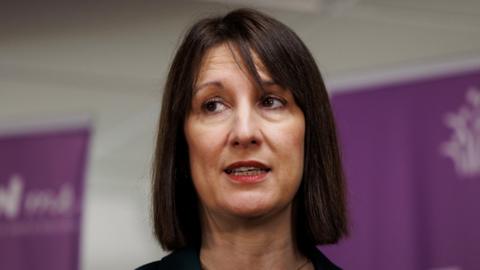The chancellor has said a crackdown on government "waste" will ensure key public services can be prioritised for funding.
Rachel Reeves said departments would be asked to identify 5% "efficiency savings" as part of a review to set their budgets for the coming years.
The review, to conclude next June, will see ministers haggle for money as Labour sets the political tramlines for the next election.
But the Conservatives have poured scorn on the suggestion Labour would make the public sector more efficient.
